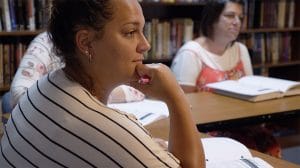In Understanding the Times Dr. Jimmy Lee relates eight qualities that are necessary for any person to be effective in helping relationships. When used successfully these core conditions can benefit all relationships. These qualities are a process requiring practice. We have reviewed four of the eight qualities:
Today we look at the fifth quality: Self-disclosure
Dr Lee Says:
A helper can share his or her own personal experiences and insight that may assist the seeker in understating how to deal with a life-controlling problem. A helper should use caution and not overuse self-disclosure by talking too much thereby shifting the focus of the conversation away from the seeker.
The helper should have a clear goal of self-disclosing. Self-disclosure should not be confused with empathy which seeks to “feel with” the person. The goal is to provide insight the person seeking help does not appear to have. While sharing with the individual, the helper should not talk down to the seeker as being inferior or as a child; rather, the person should be treated as an adult talking to another adult. Sharing insights for the purpose of helping should always be positive in conversation although the outcome may be painful.
“God is not the Author of all events, but He is the Master of all events.” (David Seamands: Healing for Damaged Emotions; 139) Stay at the level of insight relevant to the person’s need. “Admit your faults to one another and pray for each other so that you may be healed” (James 5:16 TLB.) Self-disclosure should be for the purpose of bringing healing to the person enslaved by a stronghold.
Three quick observations, although there are many more that could be made.
First, Sharing your own stories and experiences are an excellent way to connect with the students at Teen Challenge. I think it is important for the students to know that we are human. Wait, let me rephrase that. I think it is important for the student to know that we know we are human. They already know we aren’t perfect. It is important for them to see that we know we aren’t perfect. I personally enjoy hearing a preacher who relates his personal struggles in his sermon. I know he is real and sharing from experience and not just sharing a bunch of text book theology. Even during the process of the day I think it is good to relate our personal story.
Second, when you can relate a specific incident in your life, use it to relate a truth you are trying to communicate to them. As Dr Lee says, “The goal is to provide insight the person seeking help does not appear to have.” In a word: FOCUS! Keep the goal of the story in mind, the truth you want to relate.
Lastly, Dr Lee says, “A helper should use caution and not overuse self-disclosure by talking too much thereby shifting the focus of the conversation away from the seeker.” A friend of mine who when through Teen Challenge related to me that a particular staff member talked more about themselves, telling their personal stories with not apparent point, and did not listen to them.
As the saying goes, “Just keepin’ it real bro!”
Think about it –
- Are you relating your personal stories?
- Do your words speak truth and create opportunity for healing?


